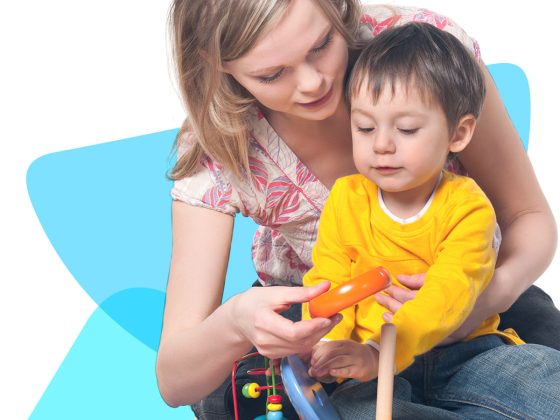
Executive Function Milestones
Learn the executive function skills that children develop from birth through 6.
Executive function skills are like an air-traffic-control system for the brain. Planning, controlling impulses, and focusing attention are some of the important executive-function skills that help children learn, hold information in their minds, control their actions, and follow a task through to the end. They help with success in school and in life.
0–24 months: As little ones follow objects with their eyes, and get fussy or cry when activities don’t change quickly enough, they’re showing signs that they are thinking and learning. Babies may begin to create pictures in their minds and make decisions about those pictures (for example, starting to remember that unseen objects are still there, such as a toy hidden under a blanket). Recognizing familiar faces and sounds is a sign of their working memory in action, as their brains become able to hold on to information for longer periods of time.
You can:
- Play peek-a-boo to help develop skills for remembering.
- Practice problem solving by playing with toys like shape sorters, blocks, and simple (2–3 piece) puzzles.
2 years: Children are beginning to hold information in their minds and may be able to follow two-step instructions (“Pick up the toy and put it in the box”). They’re also getting better at self-control (not touching a fragile object when told not to). They may also understand other peoples’ plans or goals (bringing over a diaper when they see a parent changing their sibling).
You can:
- Practice persistence by building block towers, knocking them down, and rebuilding!
- Play games like “Simon Says,” in which children need to follow rules, and “Freeze Dance” to give them practice controlling their movements and following directions.
3 years: Figuring out how to open doors or play with toys that involve moving parts are signs that children are beginning to solve simple problems on their own. They may be able to remember directions with two or more steps (“Please wash your hands, then come sit down at the table and eat dinner”) and resist temptations to do things such as jump into a muddy puddle when it is raining.
You can:
- Play matching games to help with memory. Ask children to find objects in books or around the house that are the same.
- Help children feel good about their efforts, not just the outcome: “You are working so hard on that puzzle, really thinking through where each piece fits.”
4 years: Children can hold even more information in their minds as they show that they’re able to remember directions with multiple steps, and remember two rules at the same time (wipe your feet off on the mat outside, and then take your shoes and socks off at the door). Children may also start to think ahead. You might notice this as you read together, when your child tells you what she thinks is going to happen next in the book.
You can:
- Help with making predictions and thinking ahead when you read together by asking children what happened and what they think might happen next.
- Play simple board or card games to help develop critical-thinking skills.
5 and 6 years: When you see kids do things like wait 15 minutes for cookies to cool off from the oven instead of reaching for a readily available snack, it’s a sign that they’re able to delay gratification for longer periods of time. They may also be getting better at remembering rules where one thing depends on the other: “If you’re not feeling well tomorrow, we’ll go to the doctor. If you’re feeling better, you’ll go to school.”
You can:
- Engage in child-development activities that encourage trial and error, such as stacking objects or doing puzzles (with less than six pieces).
- Play games in which rules switch (such as “Follow the Leader”) to help children learn to think flexibly.
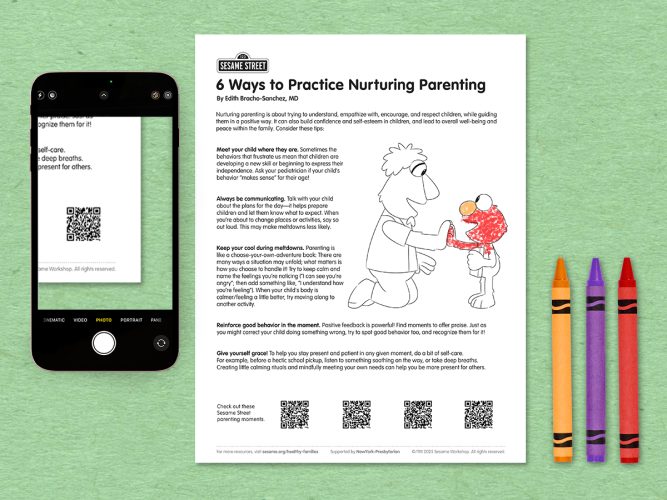
6 Ways to Practice Nurturing Parenting
Tips from a pediatrician on understanding, empathizing with, encouraging, and positively guiding children.
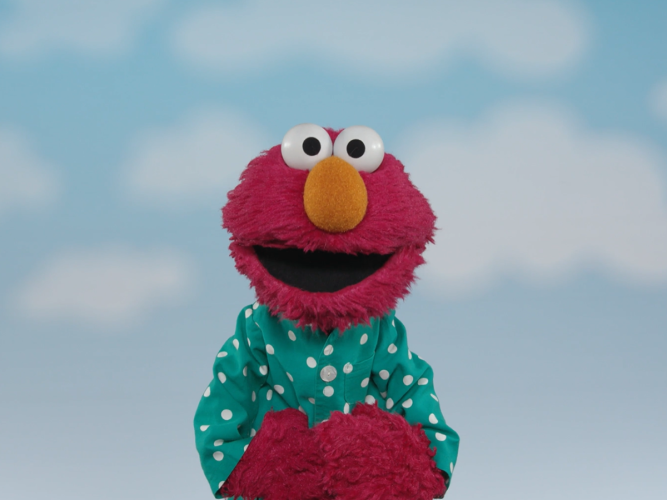
Listen, Feel, and See with Elmo
When children are in the hospital, this mindfulness game can help them soothe themselves.
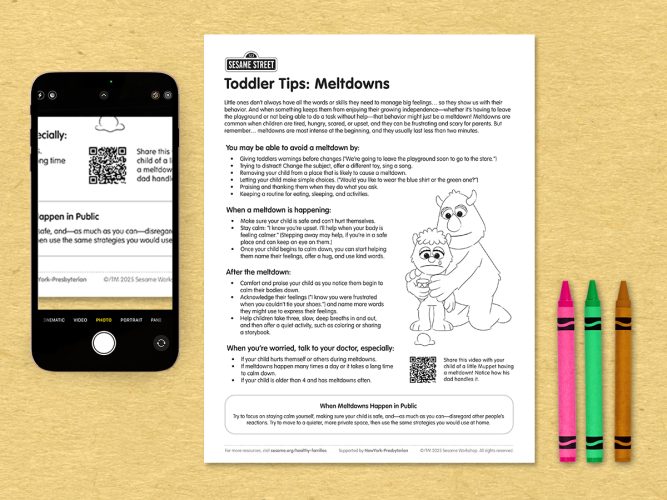
Toddler Tips: Meltdowns
Strategies for during and after a meltdown…and even some ways meltdowns might be avoided.
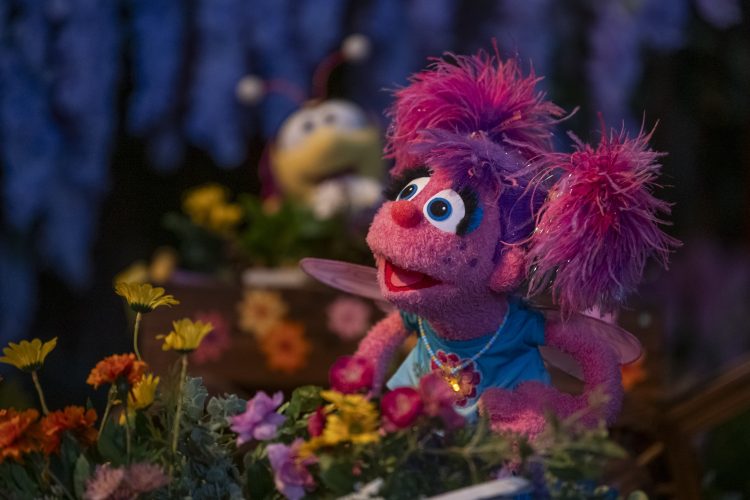
Watch and Play: Abby's Magical Beasties
Watch this episode and explore ways to extend the learning at home.
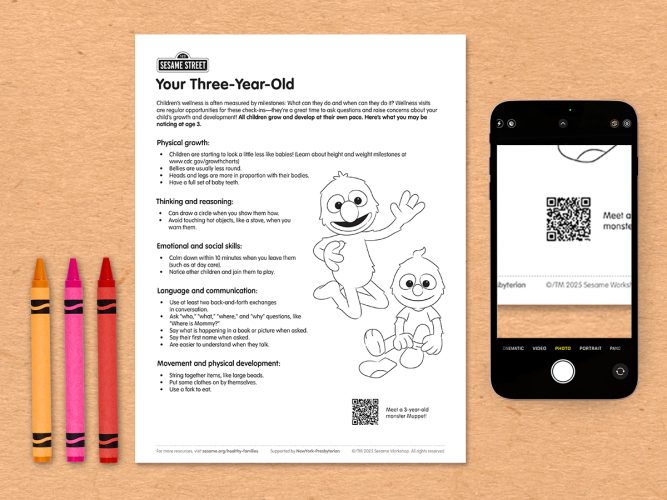
Milestones: Your Three-Year-Old
All children grow and develop at their own pace; use this chart to guide your expectations and observations so you can talk to your child’s pediatrician about questions or concerns.
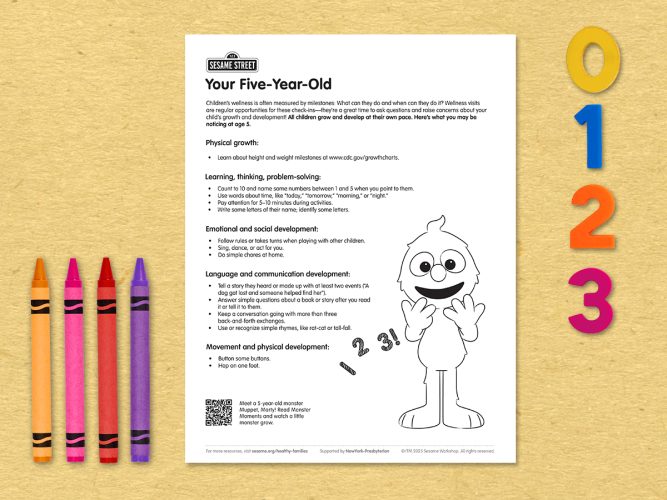
Milestones: Your Five-Year-Old
All children grow and develop at their own pace; use this chart to guide your expectations and observations so you can talk to your child’s pediatrician about questions or concerns.
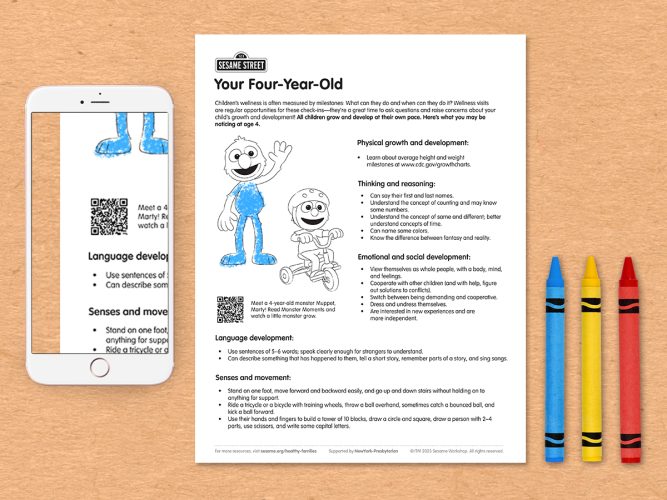
Milestones: Your Four-Year-Old
All children grow and develop at their own pace; use this chart to guide your expectations and observations so you can talk to your child’s pediatrician about questions or concerns.
